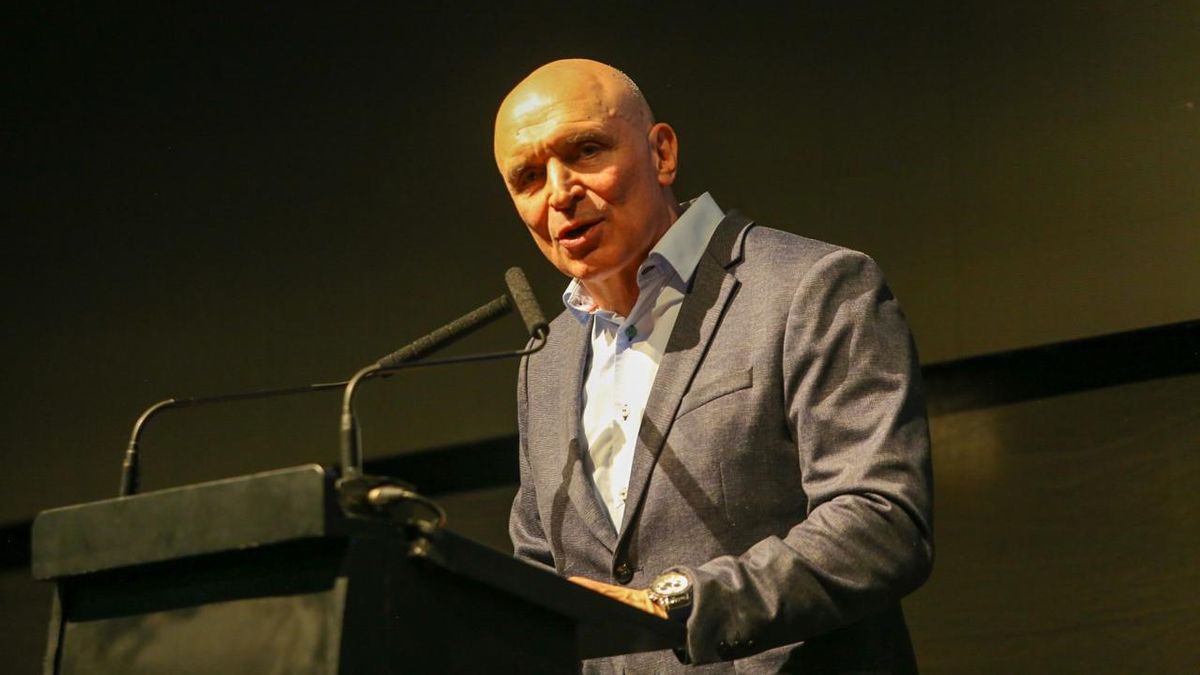(By Gonzalo Ruiz Tovar, from Lima) The unilateral decision of the Peruvian Congress to declare the President of Mexico, Andrés Manuel López Obrador, “persona non grata”, this week deepened the diplomatic problems for President Dina Boluarte, also facing Bolivia, Colombia and Honduras, and it was a decision in which the Legislature “did not think about the consequences” for foreign policy, said analysts consulted by Télam.
“Congress does not direct foreign policy, but it does not help. (The Ministry of) Foreign Relations cannot be dragged down by the ‘gross and stupid’ actions of Congress,” commented Peruvian international affairs expert Óscar Vidarte, criticizing the initiative. of the Legislative
Congress, controlled by right-wing forces now allied with the Executive, disqualified López Obrador for his repeated criticism of Boluarte, whom he calls “usurper” and “spurious” since he took office on December 7 to replace the dismissed Pedro Castillo, ally of the Mexican ruler.
“The problem here is that (the Mexican president) does not want to hand over the pro tempore presidency (of the Pacific Alliance, made up of the two countries plus Chile and Colombia) and does not recognize Dina Boluarte or the Peruvian Congress,” the president justified. of the Congressional Foreign Relations Commission, María del Carmen Alva.
“Thank you very much. I would feel very bad if those legislators and the lady who holds power gave me an award or applauded me. Maybe it would cause me shame,” López Obrador replied at a press conference after being notified of the declaration of non-gratuity , approved by a vote of 65 to 40.
López Obrador, who wanted to give Castillo asylum – who was arrested when he was going to the Mexican embassy in Lima – and that his wife and children be protected, maintains that the imprisoned former president was deposed by a “racist” political power. and “classist” who did not accept him because of his poor and indigenous origin.
Within this framework, the ruler refuses to hand over to Boluarte the pro tempore presidency of the Pacific Alliance, which would correspond to Peru due to the pre-established rotations.
For the Peruvian analyst of international affairs Farid Kahhat, if this pro tempore presidency is as important as the Peruvian government and Congress now say, “why the latter did not give permission to the still ruling Castillo when he was going to travel to Mexico in November to receive it?”
“There you can see the importance that is given to that presidency,” Kahhat remarked when criticizing the Peruvian position, although he agrees that López Obrador’s defense of his former colleague is not entirely well founded.
Peru’s friction with Mexico also occurs with Colombia, whose president, Gustavo Petro, was similarly declared “unpleasant” by Congress for his persistent defense of Castillo and his refusal to recognize Boluarte.
In the midst of this week’s friction, the Prime Minister of Peru, Alberto Otárola, lashed out at López Obrador and Petro, whom he called “alligators from the same well” who lead “mediocre and authoritarian” administrations in their countries.
For Kahhat, if Peru considers that these two governments are “authoritarian”, what proceeds is for the country to challenge their presence in the Pacific Alliance. The same applies in the concept of him for the other party, which should request the exclusion of a government that two partners consider illegitimate.
The bases of the Pacific Alliance, an integrationist group with primarily economic interests, establish that the countries that belong to it must have fully democratic governments to remain as partners.
The fourth member of the organization, Chile, defends, on the contrary, that the pro tempore presidency for Peru, which has generated surprise and criticism against President Gabriel Boric, who like López Obrador and Petro has leftist thinking.
“We believe that, indeed, the pro tempore presidency corresponds to Peru. We advocate that there be an understanding between our countries that allows this to be smoothed out in the best possible way,” said Chile’s Undersecretary for Foreign Affairs, Gloria de la Fuente.
Unlike Colombia and Mexico, Chile has had a relaxed position regarding Boluarte, apart from the fact that a few weeks ago there were tensions due to the concentration on the border of thousands of Venezuelan migrants to whom both countries refused to advance towards their territories.
“It seems that the brother president of Chile forgets that (Salvador) Allende was a victim of CIA interventionism. The presence of the United States Armed Forces in Peruvian territory corresponds to the meddling plan of the Southern Command to usurp the natural resources of the region, especially lithium, gold and fresh water,” claimed former Bolivian President Evo Morales.
“The authorization for the entry of these troops threatens peace in Latin America,” Morales added on Twitter, linking his comment about Boric to the recent permit given by Peru to the US military to carry out training tasks.
The former Bolivian president was also declared persona non grata by the Peruvian Congress, which prevents him from returning to a country that he continually visited across the border during the Castillo government.
Peru’s friction with Colombia and Mexico have also led to the expulsion from Lima of the ambassadors of those countries in Lima, a measure that has not been reciprocated, so diplomatic relations are maintained, although at a very low point. The same is true of Honduras, whose president, Xiomara Castro, also ignores Boluarte.
Since he took over from Castillo, Boluarte has had complications with countries in the area. In December, after just a few days in office, the president summoned the ambassadors of Argentina, Bolivia, Colombia and Mexico to express rejection of the positions of her governments.
International entities such as the Inter-American Commission on Human Rights are also targeting the government, especially after the repression of popular protests between December and March, which left 49 direct and 28 indirect deaths.
Source: Ambito




